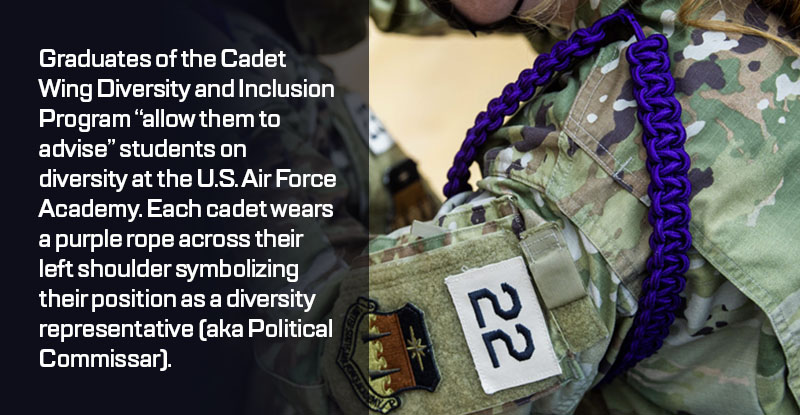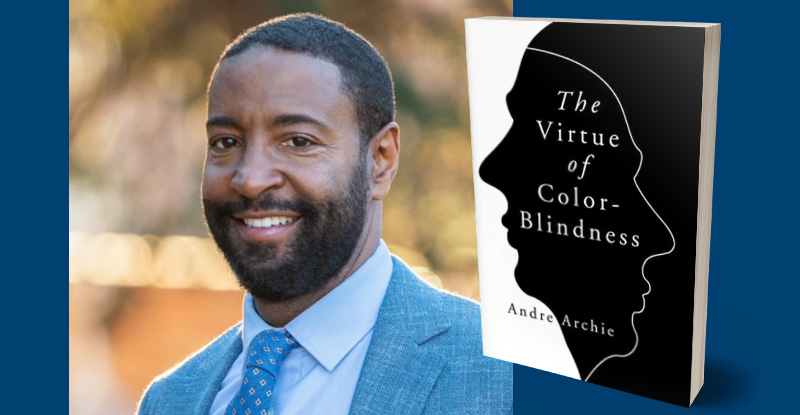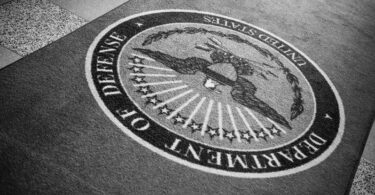By Lt Col Eric M. Vogel, USAF ret, USAFA ’73
The Virtue of Color-Blindness, by Andre Archie
Have you ever hoped to find a book so intriguing that you would feel the urge to stand up and cheer after reading just the preface and introduction?
Maybe it would be one which was exceptionally honest and countercultural.
Then this could be the book for you.
Have you ever wondered why the words of Reverend Martin Luther King, Jr. “I have a dream that my four little children will one day live in a nation where they will not be judged by the color of their skin but by the content of their character” are not included in the woke mantras which relentlessly push for Diversity-Equity-Inclusion (D.E.I.)?
And have you been disturbed by the replacement of Color-Blindness with Color-Consciousness, as exemplified by training and policy at the United States Air Force Academy?
Then this is the book for you.
Andre Archie is an associate professor of ancient Greek philosophy at Colorado State University. His life experiences, his love for classical Greek ethics (especially virtue), his respect for the Western intellectual tradition, and his courage in challenging the divisive racial zeitgeist of our times are all magnificently blended in this important work.
Published in 2024, it provides convincing arguments to counter the current absurdities, hypocrisy and damage of D.I.E. and Critical Race Theory (CRT).
His goal, clearly stated, is “to reacquaint Americans with this tradition [of color blindness] and to fight against modern-day segregationists.”
He begins by challenging the interpretation of our country’s founding documents—the Declaration of Independence and the Constitution—as racist.
Could there be any more valid counter to this argument than thoughts from the leaders of the 1960s civil rights movement and the 19th century abolitionist movement?
In MLK’s “Letter from a Birmingham Jail” he expressly supported the founding documents, referring to them as “those great wells of democracy which were dug deep by the founding fathers in their formulation of the Constitution and the Declaration of Independence.”
Abolitionist leader Frederick Douglass initially agreed with the anti-slavery thinking of William Lloyd Garrison (publisher of the abolitionist paper Liberator), but broke with him over the interpretation of the founding documents.
Did they support slavery or not? As Douglas’s thinking evolved, he reasoned that “they could be interpreted as abolitionist instruments, color-blind instruments.”
In 1851 he reversed his view of the Constitution as a pro-slavery document, citing his belief in the Constitution’s “natural law principles.”
Archie then exposes the lies and—contra the mainstream media—racism of popular CRT proponents Derrick Bell, Ta-Nehisi Coates, Ibram Xolani Kendi (Note: born Ibram Henry Rogers), and Robin DiAngelo.
Bell’s writings are informed by “racial pessimism and defeatism.” Bell, sometime referred to as the “Godfather” of CRT, and his work have come to “symbolize a movement that threatens to unravel so much of the progress on race that American has undergone.”
Coates is the author of Between the World and Me; Archie finds the book “clearly anti-white and profoundly anti-American.”
Archie was troubled that New York Times columnist David Brooks “gushed” over Coates and his book. Brooks, like so many, had fallen for the arguments favoring anti-color-blindness.
For Kendi, of How to Be an Antiracist fame (Note: a title on the Chief of Naval Operations 2021 Reading List for Sailors), you are not permitted to say that you are not racist; you must be antiracist—or else you are racist.
Archie condemns antiracism as an ideology which, in discussing race and racism, ignores a fundamental aspect of our humanity: character is everything.
(Note: A major financial and mismanagement scandal hit Kendi’s Center for Antiracist Research at Boston University last fall.)
Archie warns that “Diversity Training has become the Trojan horse of many racial ideas which threaten to re-legitimize the immoral and now unlawful practice of segregating the races, separate but equal…”
As a diversity trainer, Robin DiAngelo ignores individualism and objectivity while focusing on identity groups. In White Fragility: The Challenges of Talking to White People about Racism, readers learn about unconscious bias, the priority of race over status (merit) and the criticality of “positive racial discrimination.”
Is there any hope for this relapse in race relations? What is to be done? Archie makes suggestions throughout the book.
We should “ban Critical Race Theory without further ado.”
Our American culture, one based on “individual agency and color-blindness” must be renewed.
African-American families, often alienated from community, must be “made whole.”
Overall, American identity must be primary, “victimology” must end, and color-blindness must dominate.
Although the USAF Academy is not mentioned in the book, Archie’s thoughtful writing and alternative points of view would add much needed balance to USAF Academy CRT training (Note: although CRT, according to the Academy, is not part of the Cadet education).
The 90 Diversity and Inclusion cadets with purple armbands, in particular, could become more inclusive by respecting the cadets who share Archie’s noble philosophy—but are afraid to express those thoughts.

Before an immediate and outright rejection of The Virtue of Color-Blindness, the Academy military staff, the faculty, and the Cadet Wing should consider, recognize, and respect the source of Archie’s reasoning: ancient Greek ethics, the Western intellectual tradition, and the pursuit of Virtue.
In explaining, with great insight, how color-blindness evolved into color-consciousness, Archie issues an insightful warning for conservative thinking; this is one of the most significant takeaways of the book:
Among those who understand consequences, conservatives in particular should be aware of the moral hazard of legitimizing certain ideas by thinking they can be defeated solely by open and rational discussion.
One such idea that conservatives failed to challenge and debunk before it took root (in the early 2000s) in influential sectors and institutions of American society is the idea of anti-color blindness. …
Contemporary American conservatives failed to see just how corrosive and revolutionary the anti-color-blind pedagogy is.
This thought—in fact, the whole book—is strong evidence that the existence, strategy and goals of STARRS are right on target and as important as ever.
Read this honest and countercultural book—then stand up and cheer for The Virtue of Color-Blindness.
Book description: A black professor takes on the cult of diversity, equity, and inclusion. In this compelling appeal to true justice, he demolishes the identity politics that makes a travesty of Martin Luther King’s dream.
Martin Luther King’s dream of a colorblind society is dead. Powerful political, educational, and corporate forces are making race the defining feature of American life, and nobody dares to stop them.
Naively confident in the “marketplace of ideas,” conservatives have done nothing as cultural Marxists have rewritten America’s history and redefined its ideals. But we can’t assume that poisonous ideas will simply wither when exposed to the light. The truth, argues the maverick black scholar Andre Archie, requires a spirited defense.
In The Virtue of Colorblindness, Archie exposes the injustice of our emerging civil religion. Radical ideologues now teach our children that colorblindness is racism, while the “Diversity, Equity, and Inclusion” industry promotes policies that punish some people and reward others because of the color of their skin.
Far from helping black Americans—or any other Americans—these racists of the left are sowing division, tribalism, and resentment.
The attack on colorblindness is anti-American and does not deserve a respectful hearing.
It’s time to fight back.
Read an excerpt:
We should fight for a color-blind society — not one separated by race








Leave a Comment